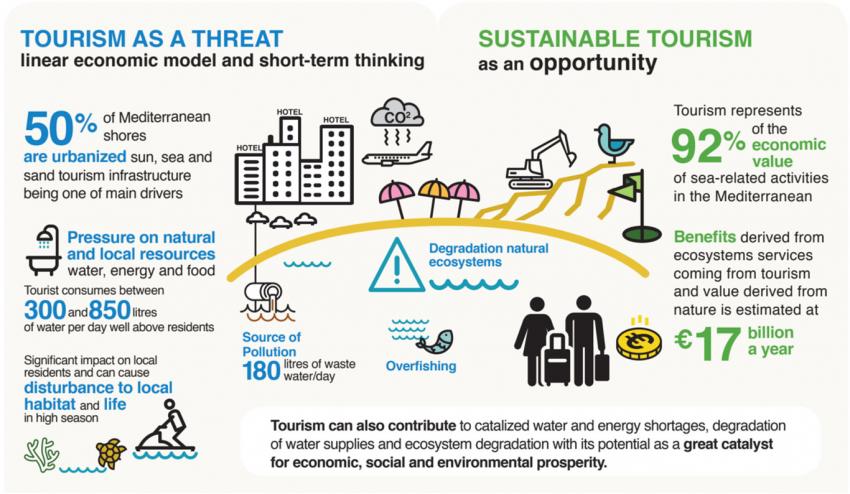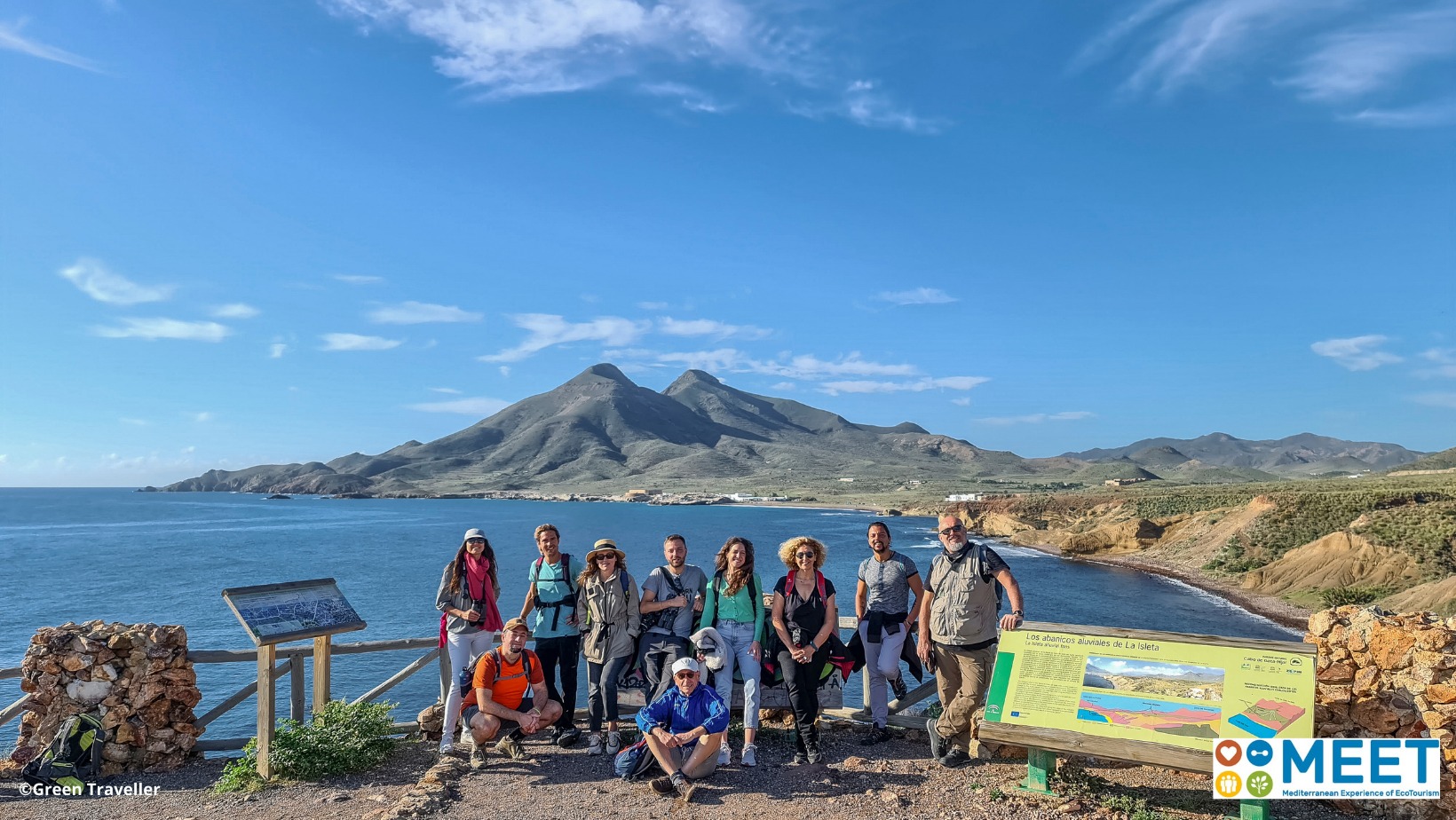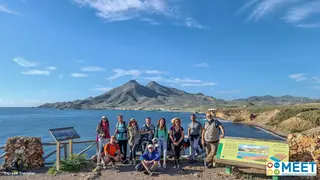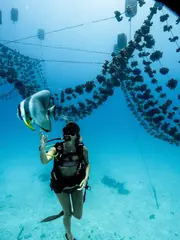IUCN-Med is looking for PARTNERSHIPS to build alliances, fund and implement projects on:
- Building the Mediterranean Ecological Network.
- Assessing Tourism impacts on ecosystem services in coastal areas
- Tourism and Conservation Policy Advocate for policy change and integration of conservation and sustainability agenda in tourism at Mediterranean, regional and local scale.
- Tourism Planning & management Develop new tools and guidelines to plan, manage and monitor the net impact of tourism on key ecosystem services in coastal areas for destinations and administrations managing the coastal environment, under the principles of ICZM.
- Changing minds about tourism and nature - Mainstreaming biodiversity into the tourism industry, increasing the valorisation of the Med unmodified natural coastal landscapes as a key tourism asset and enhanced awareness of the sector on marine and coastal biodiversity.
- Reducing tourism impacts- Work with the tourism supply chain on measuring and reducing its ecological footprint in Med coastal zones and Protected Areas.
- Market access for sustainable products- creating innovative ecotourism products in Med PAs as best practice examples, supporting local operators to gain market access through the community around the MEET Network .
- Capacity for Tourism Management in PAs Building capacity for ecotourism development in PAs, through coaching, training workshops and MOOCs, giving Protected Areas managers the training and tools to measure, manage and keep tourism impact within limits of acceptable change.
Or those interested, please contact our focal person Carla.DANELUTTI@iucn.org with the message subject: Partnerships for Ecosystem Resilience and Spatial Planning







